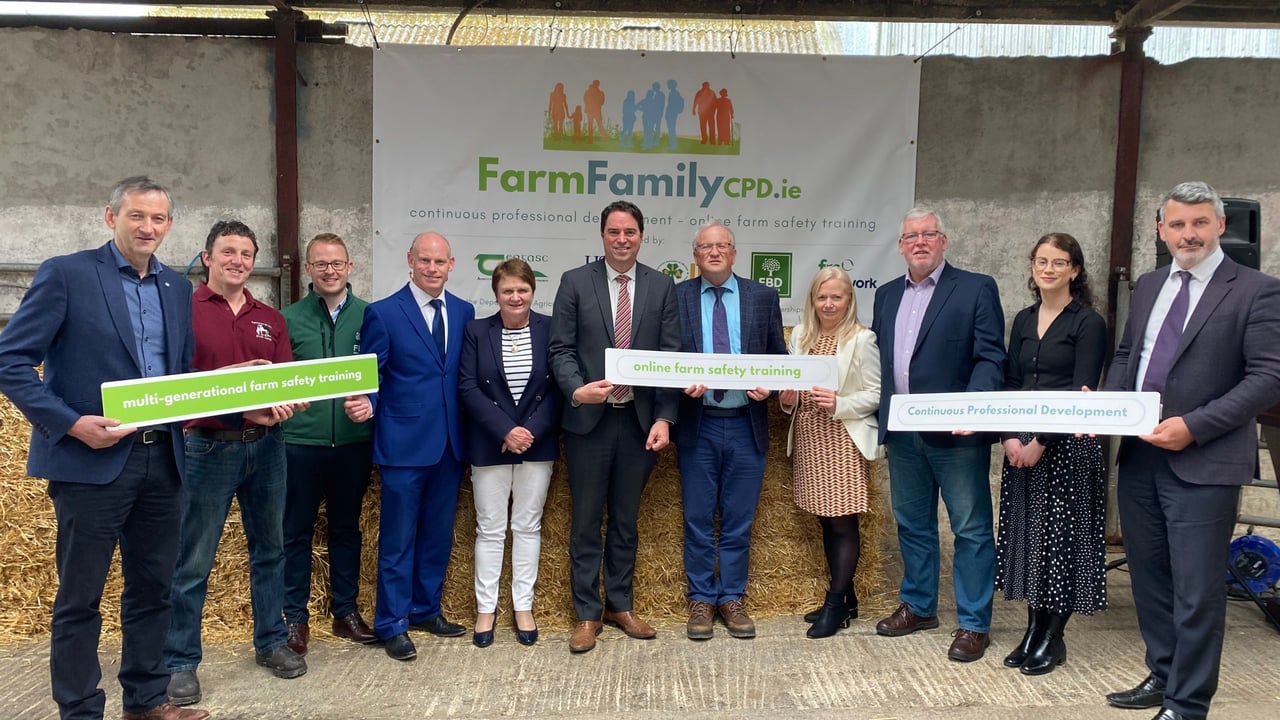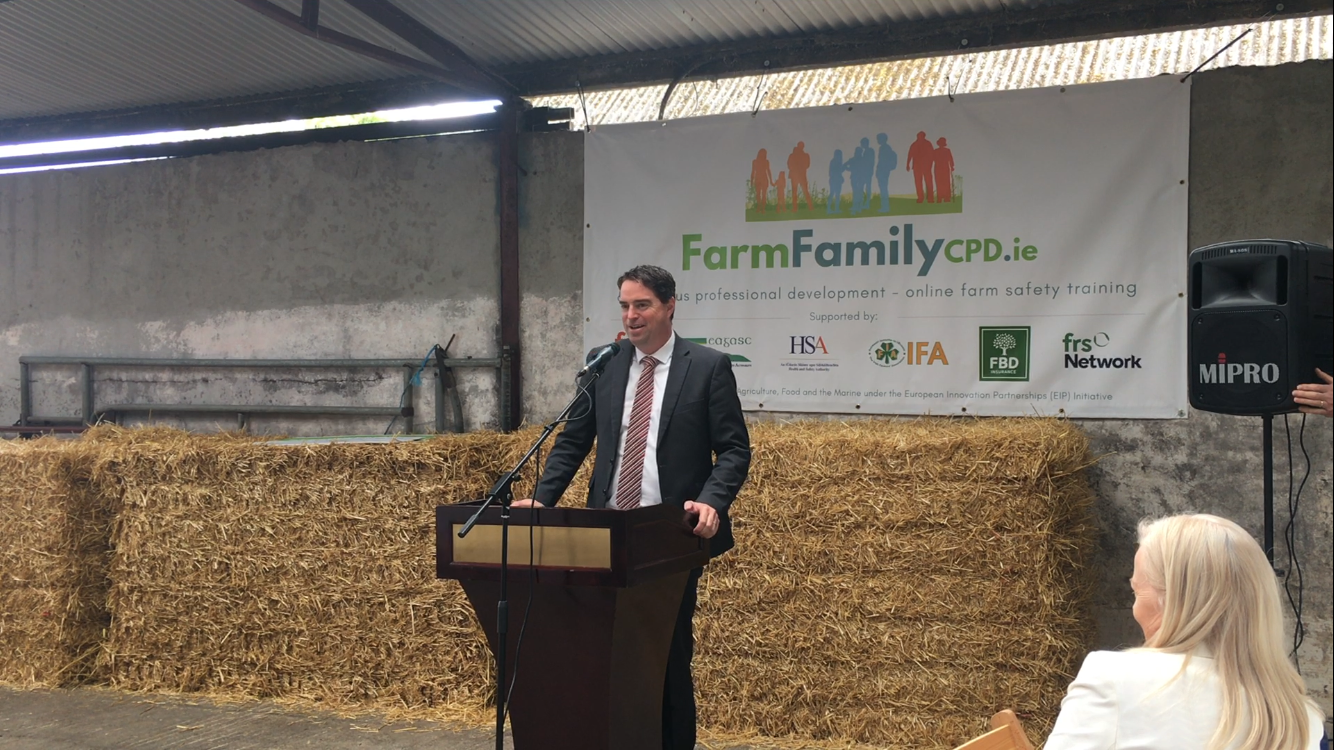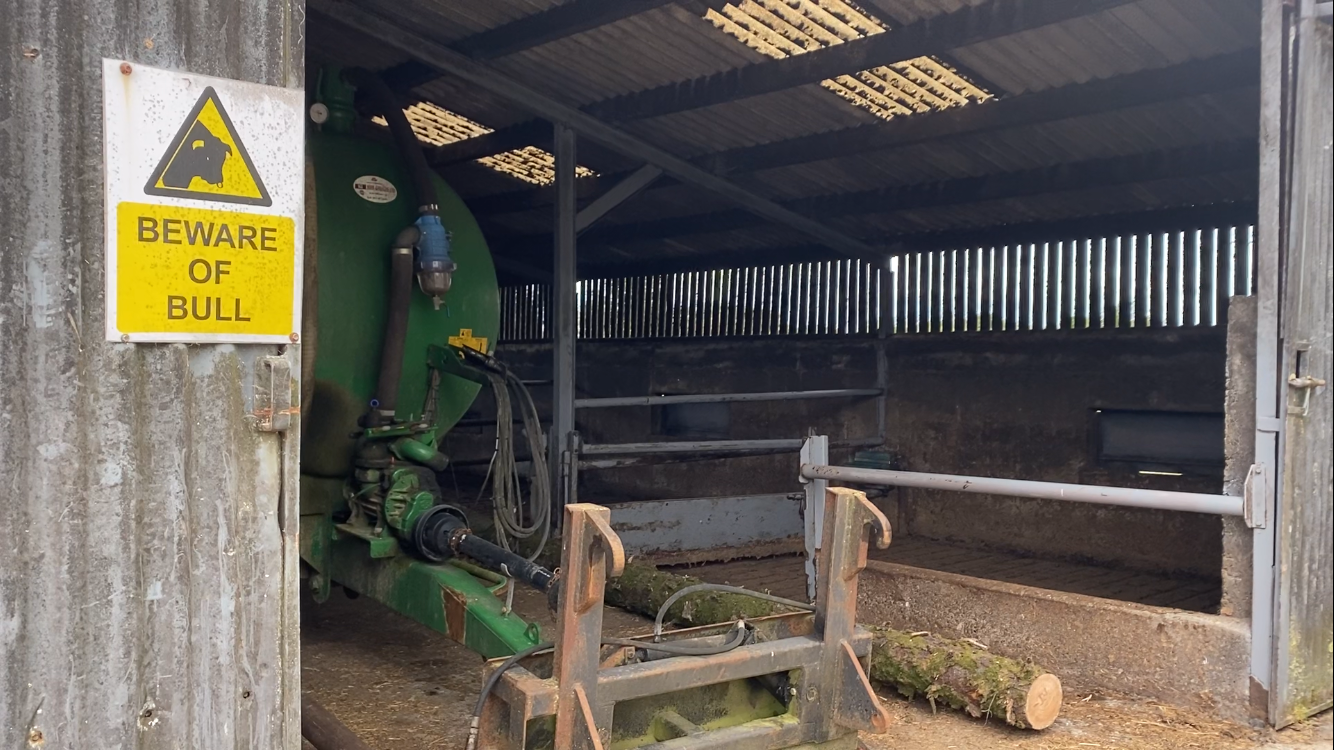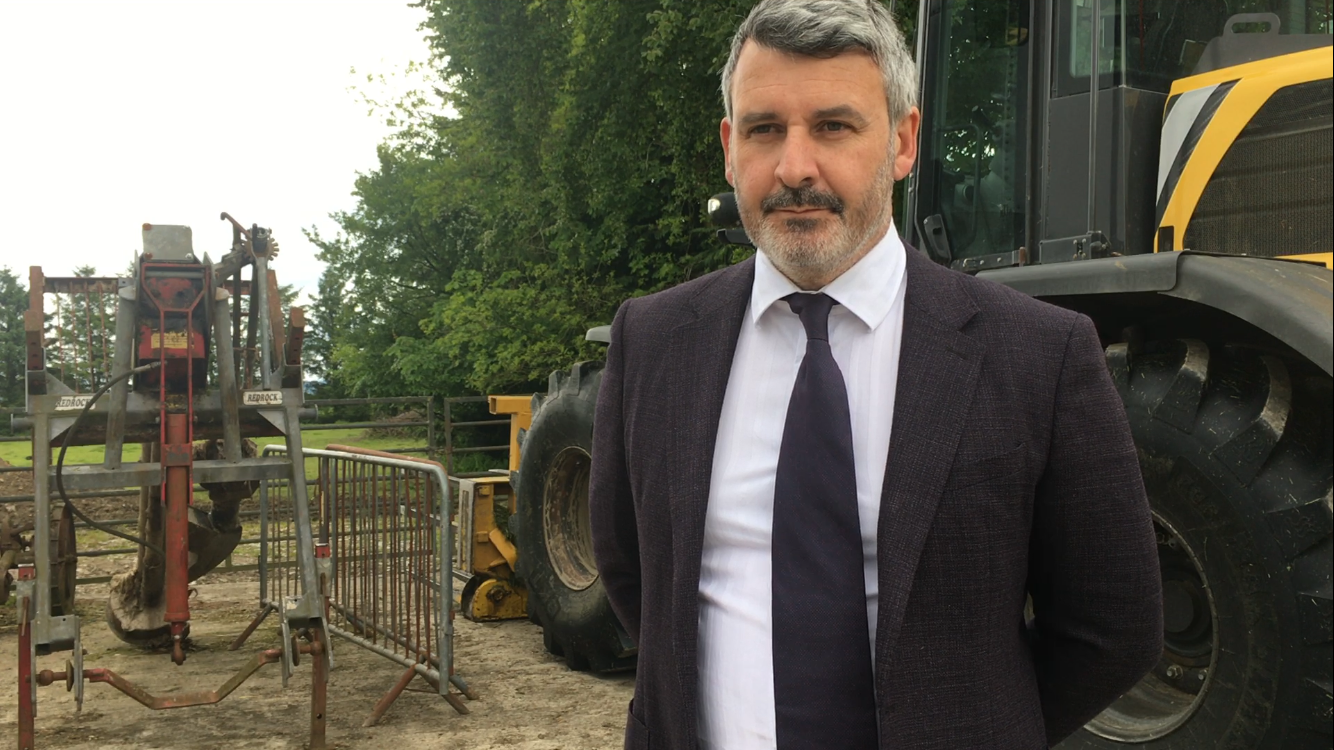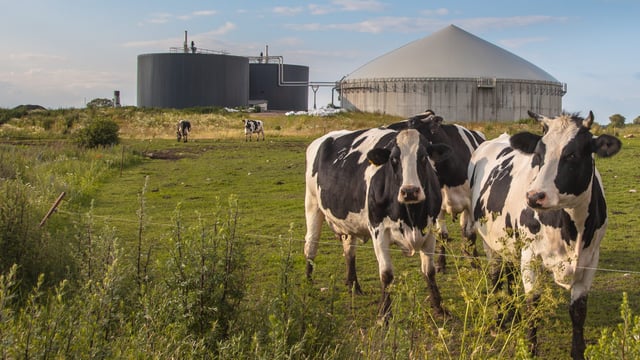New Farm Family project to deliver free safety training
A new farm safety project 'Farm Family CPD' which will deliver online, multi-generational training free of charge, was launched today (May 31), in Co. Kilkenny.
A European Innovation Partnership (EIP) Project, Farm Family Continuous Professional Develoment (CPD), is funded through the Department of Agriculture, Food and the Marine (DAFM), meaning that the training can be freely accessed by all farming families.
The project hopes to harness the power of the "dinner table chats" to bring about a change in behavioural norms around farm safety, from within the family unit.
It is focused on taking a multi-generational approach to achieve this, believing that by involving all family members, the entire culture around risk management can be improved upon.
Speaking to Agriland at the launch event, Minister of State at the DAFM with Special Responsibility for Farm Safety Martin Heydon, explained the importance of empowering children as well as adults to highlight hazards on the farm. He said:
Minister Heydon added that the ultimate aim of farm safety projects such as this is to reduce the overall level of risk and create a safer culture among those who work on farms.
"We want to reduce the amount of close calls on farms because statistically we know that the more near misses there are, the more fatal incidents and life changing incidents there will be.
The launch of the campaign comes as we enter the two most dangerous months of the year in farming, statistically. Bryan Daniels, who hosted the event with his wife Gail at their farm in Kilmoganny, Co. Kilkenny, explained this.
"It's a busy time of year on the farm, it's silage season, you're using a lot of machinery, the kids are off school running around as well, so it's a time of year to be really aware of safety."
The project will also be communicating key messages such as this on the platform used to deliver the training to remind farmers of various hazards at different times of the year.
Speaking at the event, Peter Slattery, farm Family CPD project manager, explained that the training programme will focus on three cohorts: Under 16's; young adults and adults; and 65+. The first and last of which are statistically, the most vulnerable.
Offering the programme online was also desirable as it allows the project to reach those who have the power to manage the risks, in the place where behavioural norms are developed: the home.
Although there may have been concern in the past about offering training of this sort virtually, those involved in the project say it has been met with the opposite reaction, as farmers are now much more familiar, and comfortable using technology.
He concluded by adding that the project will listen to those who participate in it and take their feedback on board.:
"Evaluation will point is in the right direction, we have as much to learn from the people who are not getting involved too, so we'll keep that in mind."

